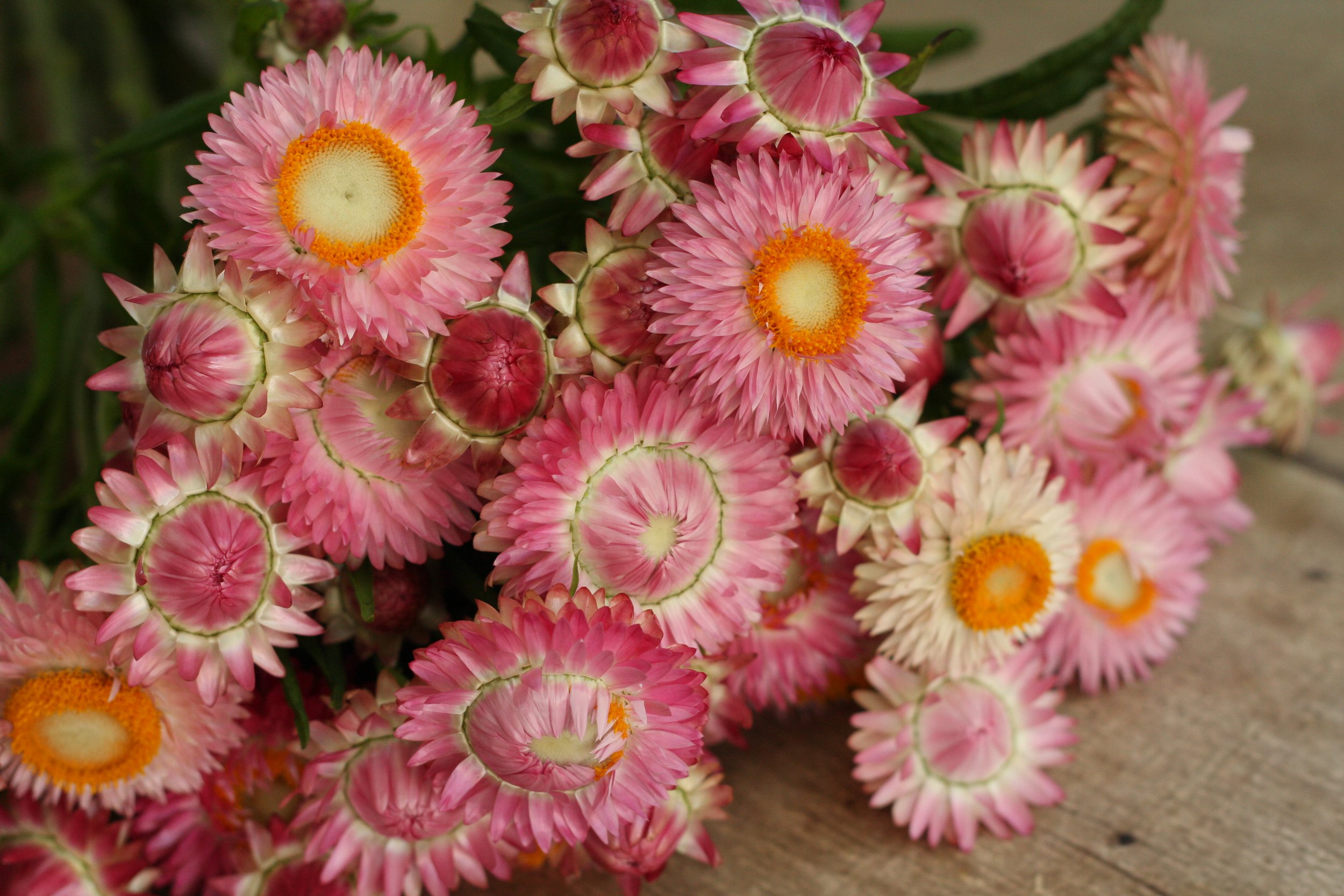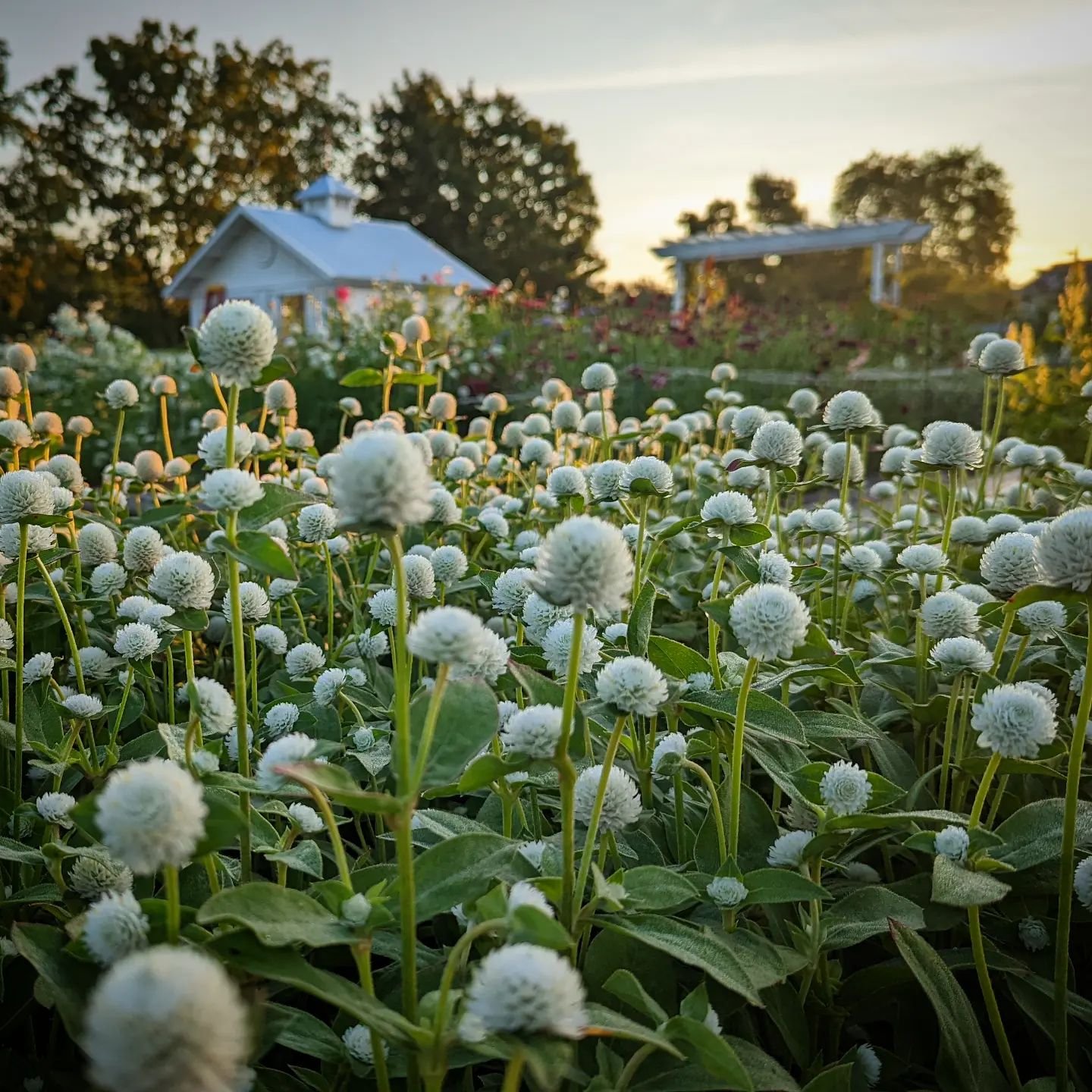“Everlasting Flowers”: How to Dry Flowers
Ahhhh, summer.... some days I wish I could hold onto you forever. But alas, I've discovered it's your fleeting nature that makes you oh so sweet.
I must confess. I adore winter and look forward to that time of quiet restoration after the insanity of summer.
But I miss my flowers.
Imagine my delight when I discovered that some of the flowers we grow are considered "Everlasting" flowers.
"Everlasting" flowers are a category of cut flowers that are easy to dry and will last for years with proper handling.
Drying flowers is a fun project to do with kids... and a great way to create a year round reminder of summer fun.
Last fall, I dried bunches and bunches of flowers, then used them to decorate my home during the long winter months.
“Everlasting Bouquets” of flowers for drying: Celosia, Eucalyptus, Globe Amaranth, Green Drops Grass, Statice, Strawflower
How to Dry Flowers
It's a simple, easy process!
1. Cut flowers in the morning, after the dew has dried but before the day is too hot (usually before 11am).
*Each flower has it's own unique "ideal stage of harvest", which can make things tricky... but as a general rule, cut the flowers early while they are still opening up, not completely in bloom. You may have to do some experimenting to determine the "ideal stage of harvest".
2. Strip the foliage off the stem. (Note: Strawflower stems are notoriously fragile. It's recommended that the flower heads are gently popped off the stem and replaced with a piece of floral wire instead).
3. Create bundles of about 10-12 stems and secure the stem ends with a rubber band or string.
4. Hang the bundles upside down (flowers facing the floor) in a dry, dark place, out of direct sunlight (sun makes the colors fade). An attic or closet would be good. A basement probably too damp. I've had good luck drying in our garage and kitchen pantry.
5. In 2-3 weeks, the flowers should be fully dry and ready to use in Everlasting arrangements.
Statice “QIS Apricot”
Alternative Method for Drying Flowers
This method works best for: Bells of Ireland, Celosia, Hydrangea and Yarrow
1. Place flowers with stems in a jar filled halfway with water.
2. Place jar in a warm, dry, dark place (a kitchen pantry or attic would be ideal).
3. Allow water to evaporate naturally. Once water is completely gone, the flowers should be dry and ready to use.
Strawflower “Bright Rose”
Flowers Suitable for Drying
Almost every flowers CAN be dried... but not all of them will actually look nice. Ha!
When in doubt, you can always try it out... but as a general rule, look for flowers/foliage that feel "papery" or stiff.
Here are a few that are good candidates for drying. Of course, this is by no means an exhaustive list!
Amaranth
Artemisia
Baby's Breath
Bells of Ireland
Celosia
Craspedia (Drumstick Flower, Billy Buttons)
Dusty Miller
Eryngium (Sea Holly)
Grasses - Pods/Seed heads
Gomphrena (Globe Amaranth)
Hydrangea
Lavender
Money Plant (Lunaria)
Nigella (Love in a Mist) - Pods
Poppy - Pods
Queen Anne's Lace (Ammi or Daucus)
Starflower (Scabiosa) - Pods
Statice
Strawflower
Wheat
Yarrow
Globe Amaranth “Audray White”
Right now is a GREAT time to start drying flowers for your fall and winter decorating.
Please be sure to comment or share with me if you try this fun project. Enjoy these last few weeks of summer :)
-Lori
READY FOR MORE?
If you’re serious about growing the garden of your dreams this year, and want me to answer all your burning questions, register for my online course, “Backyard Cutting Garden 101”.
You’ll find everything you need to plan, grow, harvest and arrange your stunning blooms. I can’t WAIT to help you grow! Click on the button below for all the details.


![20180813_112449[1].jpg](https://images.squarespace-cdn.com/content/v1/582b872529687fd6acb7423d/1534278199691-6I9QVX7APYHSJOFZAIGS/20180813_112449%5B1%5D.jpg)

